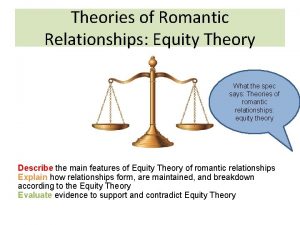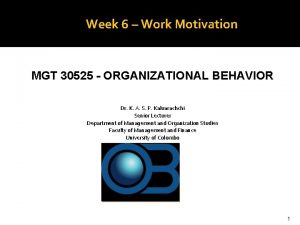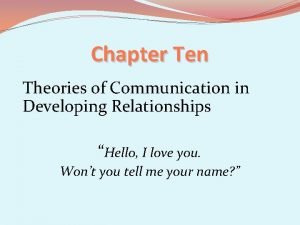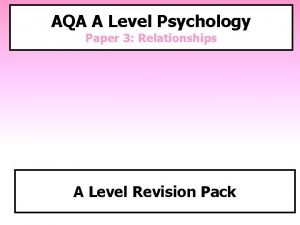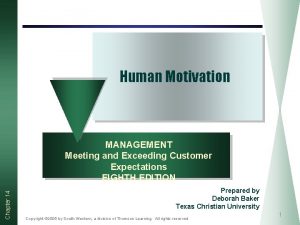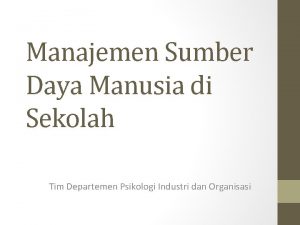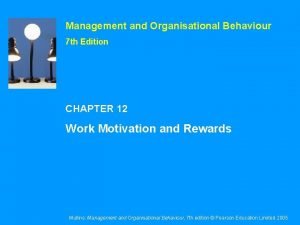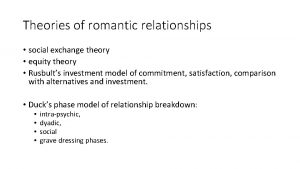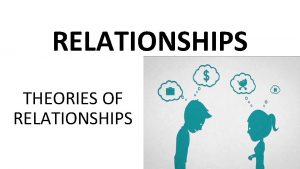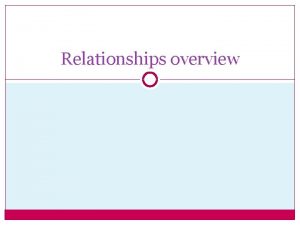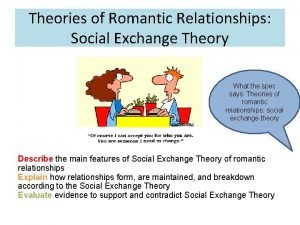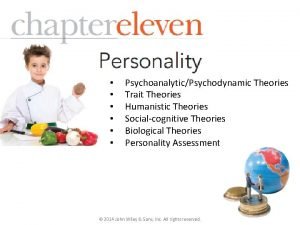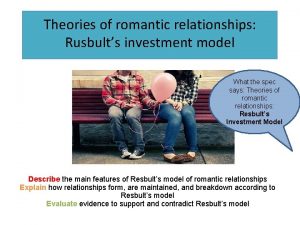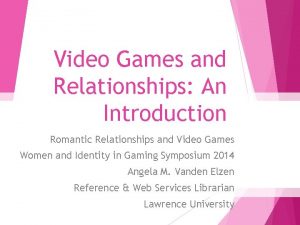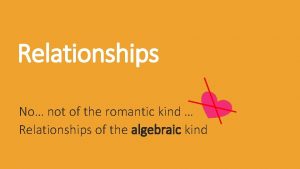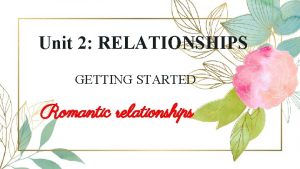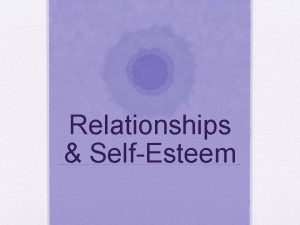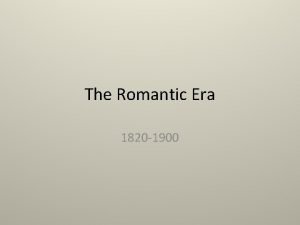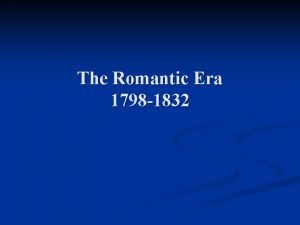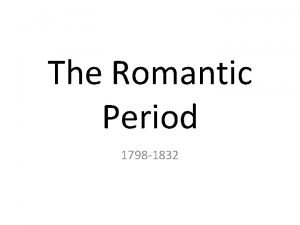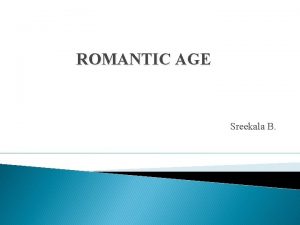Theories of Romantic Relationships Equity Theory What the


























- Slides: 26

Theories of Romantic Relationships: Equity Theory What the spec says: Theories of romantic relationships: equity theory Describe the main features of Equity Theory of romantic relationships Explain how relationships form, are maintained, and breakdown according to the Equity Theory Evaluate evidence to support and contradict Equity Theory

Starter: verbal tennis We are going to play verbal tennis to evaluate Social Exchange Theory. Girls for, boys against. You have 5 mins to prepare. Use notes/textbook.

Equity Theory Relationships • The evolutionary explanations for partner preferences, including the relationship between sexual selection and human reproductive behaviour. • Factors affecting attraction in romantic relationships: self-disclosure; physical attractiveness, including the matching hypothesis; filter theory, including social demography, similarity in attitudes and complementarity. • Theories of romantic relationships: social exchange theory, equity theory and Rusbult’s investment model of commitment, satisfaction, comparison with alternatives and investment. Duck’s phase model of relationship breakdown: intra-psychic, dyadic, social and grave dressing phases. • Virtual relationships in social media: self-disclosure in virtual relationships; effects of absence of gating on the nature of virtual relationships. • Parasocial relationships: levels of parasocial relationships, the absorption addiction model and the attachment theory explanation.

Equity Theory Walster et al (1978) See if you can come up with 10 characteristics of a healthy relationship.

Equity theory SET says behaviour is a series of exchanges – benefit and cost. Equity theory says people strive to achieve fairness in their relationships. Any kind of inequity can make people feel distressed. True both for the giver and the receiver!

Equity and Equality Equity doesn’t = Equality Equity = fair; a very subjective opinion So if one person thinks they are putting in less, it’s still judged equitable if they think they are getting out less. Perceived ratio of inputs and outputs

EQUITY THEORY – AO 1 • Equity theory has the central assumption that people strive to achieve fairness in their relationships and feel distressed if they perceive unfairness. • Any kind of inequity has the potential to create distress. People who give a great deal in a relationship and get little in return would perceive inequity, but the same is true of those who receive a great deal and give little in return. The greater the perceived inequity, the greater the dissatisfaction and the greater the distress.

EQUITY THEORY – AO 1 • What matters the most in relationships is that both partners level of profit (rewards minus costs) is roughly the same. • This isn’t the same as equality where levels of costs and rewards have to be the same (or equal) for each partner. Lack of equity can lead to one partner overbenefits and the other partner underbenefits leading to dissatisfaction and unhappiness. Underbenefitted = anger, hostility, resentment and humiliation. Overbenefitted = guilt, discomfort and shame. Satisfaction = perceived fairness.

Based on equity theory, what do you think goes with each and why? I am under-benefited in my relationship Happy Guilty Angry I am overbenefited in my relationship My relationship is equitable

Equity Theory If we perceive inequality in our relationship we try to restore it. Can you think how? Put in less / more Change the amount you demand from it Change perception of inputs/outputs

Just outline Outline and evaluate one theory of maintenance of romantic relationships (16 marks)

TASKFill in the sheet for SET and ET. Some of the boxes have been filled in to help you





EVALUATION OF EQUITY THEORY • Supporting research evidence such as Hatfield (1979), Utne et al (1984) and Van Yperen and Buunk (1990). • Most of this research comes from real life accounts made by people in a relationship. What might some positives and negatives be of this kind of method (think reliability and validity)? This may be prone to social desirability bias as not only is it self report but it is asking about potentially sensitive issues (i. e. how good/bad is your relationship) and so people may not be entirely truthful when answering, thus leading to a lack of validity (accuracy/truthfulness)

Cultural Bias – AO 3 Moghaddam (1998) suggests that such 'economic' theories only apply to Western relationships, and even then only to certain short-term relationships. One group of people who fit this are Western students. They are typically very mobile and experience many short-term romantic relationships. When there is little time to develop long-term commitment, it makes sense to be more concerned with give and take. Long-term relationships within other population groups are more likely to value security than personal profit.

EVALUATION OF EQUITY THEORY • Men and women might judge the equity of a relationship differently. Steil and Weltman (1991) found that among married working couples, husbands who earned more than their wives rated their own careers as the most important, and their wives tended to agree. In couples where the woman's income exceeded the man's, neither partner rated their career as more important.

EVALUATION OF EQUITY THEORY • Type of relationship. The type of relationships researched can also be criticised for focusing on heterosexual relationships and not gay or lesbian relationships. Even in cohabiting or dating couples, there can be differences in the perception of profit and loss and the relationships economics. The relationships used are often not representative of the general population, particularly in Western cultures where homosexual relationships are widely accepted.

Supporting research evidence

Cultural Influences

Individual Differences

Just evaluate Outline and evaluate one theory of maintenance of romantic relationships (16 marks) You should now have a full answer to this 16 mark question

Pick 9 terms and place them into the box Profit Complementraity Mini Max Principle Realignment Realistic Choice Sexual Selection Bargaining Commitment Social Penetration theory Computer Dance Study Anisogamy Correlational Research Intra Sexual Selection Matching Hypothesis Equity Theory

Homework Outline and evaluate two theories of the maintenance of romantic relationships. (16 marks)
 Equity theory relationships
Equity theory relationships Porter and lawler theory
Porter and lawler theory Theories in organisational behaviour
Theories in organisational behaviour Equity theory equation
Equity theory equation Equity theory communication
Equity theory communication A level psychology relationships
A level psychology relationships Equity theory in organisational behaviour
Equity theory in organisational behaviour Negative reinforcement
Negative reinforcement Equity theory
Equity theory Adams' equity theory
Adams' equity theory Equity theory mullins
Equity theory mullins Hát kết hợp bộ gõ cơ thể
Hát kết hợp bộ gõ cơ thể Lp html
Lp html Bổ thể
Bổ thể Tỉ lệ cơ thể trẻ em
Tỉ lệ cơ thể trẻ em Gấu đi như thế nào
Gấu đi như thế nào Tư thế worm breton là gì
Tư thế worm breton là gì Chúa yêu trần thế alleluia
Chúa yêu trần thế alleluia Các môn thể thao bắt đầu bằng tiếng đua
Các môn thể thao bắt đầu bằng tiếng đua Thế nào là hệ số cao nhất
Thế nào là hệ số cao nhất Các châu lục và đại dương trên thế giới
Các châu lục và đại dương trên thế giới Công thức tiính động năng
Công thức tiính động năng Trời xanh đây là của chúng ta thể thơ
Trời xanh đây là của chúng ta thể thơ Mật thư tọa độ 5x5
Mật thư tọa độ 5x5 Phép trừ bù
Phép trừ bù Phản ứng thế ankan
Phản ứng thế ankan Các châu lục và đại dương trên thế giới
Các châu lục và đại dương trên thế giới
